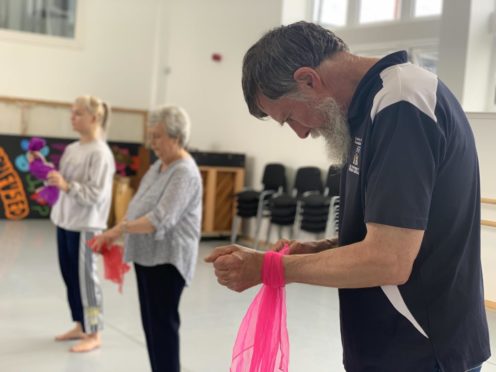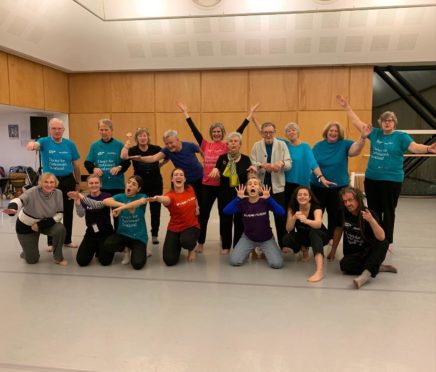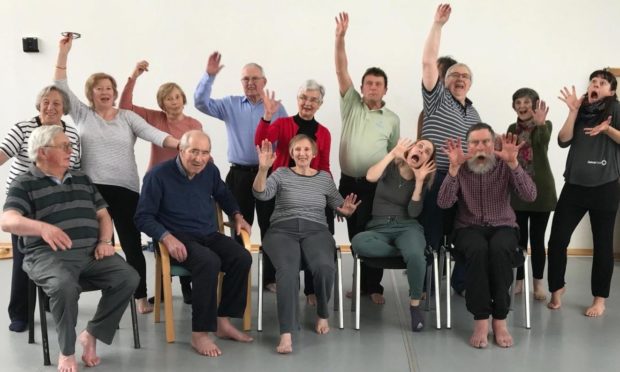Dundee dancers living with Parkinson’s have spoken out about the physical, emotional and social benefits movement has, to mark International Dance Day.
Dance for Parkinson’s is a nationwide programme which encourages people who have Parkinson’s to get active and socialise with others living with the condition.
The Dundee group, run by Shaper/Caper, gives local people who have Parkinson’s the opportunity to get together and enjoy the benefits that dance has to offer.
Thomas Small, artistic director at Shaper/Caper explains: “Dance really is for all. It’s a great leveller and we want to make sure that everyone has access to movement.
“The Dance for Parkinson’s class isn’t therapy, but it feels therapeutic because it contributes holistically to people’s mental health, to positivity, to confidence.
“It gives people an opportunity to connect and to not feel isolated.”
Social opportunities
Like many other charities, the dance classes have been moved online during the pandemic, but this hasn’t dampened the spirits of the dancers.
David Muir, 72, was diagnosed with Parkinson’s in 2002 and has found the social aspect of the Dundee group to be invaluable.
David says: “It’s the social dimension, seeing other people and chatting to them before and after the dancing sessions.

“For half an hour before the dancing we have a chat and share the good news of the week. It’s a very nice, social group.
“One of the negatives of this last year has been being at home and not being able to see anybody, so it’s very good for the mind to have the online classes.”
Managing symptoms
More than 12,000 people live with Parkinson’s in Scotland, and this number is set to increase over the next 25 years.
It is a progressive neurological condition, causing problems in the brain and gets worse over time. It is caused by a loss of nerve cells and leads to a reduction in dopamine.
The main symptoms of Parkinson’s are involuntary shaking (tremor), stiffness and slowness of movement.
The importance of exercise for those diagnosed is well-documented: doing just 2.5 hours of exercise a week can slow the progression of symptoms and has been found to be just as effective at controlling symptoms as medication.
So, not only does dance improve mental health, develop confidence and provide social opportunities, it is vital to help manage physical symptoms, too.
‘It was very emotional’
Aileen Hunter received her Parkinson’s diagnosis in February last year, just before lockdown.
She explains: “I had not long been diagnosed when I went along to the dance classes – only about a month. It was very emotional.
“I met up with everybody at the class which was fantastic because I was very worried about the Parkinson’s diagnosis and it gave me a chance to meet people with the same problems.

“I was quite concerned about meeting other people with the same diagnosis, but the minute got there I felt so relaxed and they made me feel so comfortable.
“It’s so good because actually, up until I was diagnosed, I didn’t know anyone at all who had Parkinson’s, so I’m surrounded by people now who can talk about it quite freely and it’s just nice to know they’re all there.”
